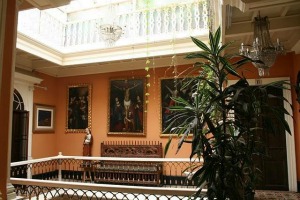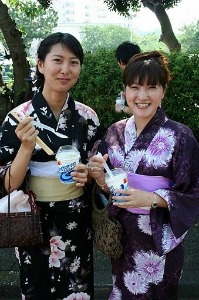Currently, some 1,500 American university students study in Israel each year. The MASA program, which is part of the Jewish Agency, hopes to boost those numbers considerably so that one day they are on a par with places like...
KEEP READINGThe CPD Blog is intended to stimulate dialog among scholars and practitioners from around the world in the public diplomacy sphere. The opinions represented here are the authors' own and do not necessarily reflect CPD's views. For blogger guidelines, click here.
Soft Power in a Hostel Environment
Travel has a long history as a medium for public diplomacy considering the role travelers have played in communicating culture and ideas of far-away lands. These peripatetic souls often provide practical readings of the global zeitgeist while carrying out their meanderings. Famous travelers such as Marco Polo, Ibn Battuta, Leo Africanus and Benjamin of Tudela are just a few of the luminaries whose work influenced generations long ago to wonder what lay beyond their city gates and made the world just a little bit smaller with their writings.
Some of the first contemporary machinations of travel diplomacy include Mark Twain’s famous book Christian Science Monitor reports”> Christian Science Monitor reports that better political stability and enhanced tourism outreach has tourist arrivals up 20 percent since last year, compared to a 2 percent increase for European tourism and a 6 percent increase for Asian tourism. The United Nations’ World Tourism Organizations notes the Middle East clocking over 53 million visitors to the region, double the numbers from a decade prior. And these statistics don’t even include tourism statistics from Israel and Turkey, two of the region’s larger tourist markets.
President Dwight Eisenhower was the first U.S. president to recognize the possibility of using American travelers as public diplomats. His administration instituted a program to train U.S. citizens traveling abroad on how to portray America well, and provided them with material and pamphlets on how to be effective citizen diplomats. Eisenhower understood that tourists positively representing the U.S. abroad could be a booster for its soft power.
Hostel in Lima, Peru. Photo courtesy of Paul Rockower © 2008
The overarching youth hostel movement, Hostelling International (HI) is more than a century old. In 1909, German schoolteacher Richard Schirmann launched the idea of the youth hostel (Jugendherberge) after he and his pupils were forced to lodge in farms and schools during a school trip. Three years later, Schirmann created the first youth hostel at the Altena Castle in Westphalia, Germany.
Today, Hostelling International represents one of the largest international membership organizations, with more than 3 million members; hostels connected with the HI movement provide more than 35 million overnight stays a year through more than 4,000 hostels in over 80 countries that span the globe. The Hostelling International movement’s mission statement is saturated with the ideals of public diplomacy:
Beyond the hostels affiliated with HI, there are also a large variety of independent hostels that also cater to the needs of travelers, backpackers and all others abroad.
As such, the hostel has an unmatched ability to attract travelers of all ages and representing diverse nationalities, cultures and social backgrounds. It provides these itinerants with a safe space to informally share their experiences, and in turn learn about themselves, their traveling compatriots and their environment. Public diplomacy is ultimately a field predicated on the communication of culture and values in the international arena, in this regard, the youth hostel and its ability to facilitate the exchange of ideas represents the essence of public diplomacy.
The medium of travel and tourism represent an important avenue of public diplomacy, and an under-appreciated source of soft power. The power of attraction by virtue of a country’s historical or cultural draw is a valuable aspect of soft power influence. The ability to communicate a country’s values and culture to the strangers in its midst can enhance soft power in ways not often fully realized. If, as Mao said, (hard) power comes from the barrel of a gun, then perhaps in our increasingly globalized and connected world, soft power can be found tied to a luggage tag.
Traditionally-dressed Japanese girls enjoy American-style treats. Photo courtesy of Paul Rockower © 2009
Visit CPD's Online Library
Explore CPD's vast online database featuring the latest books, articles, speeches and information on international organizations dedicated to public diplomacy.
POPULAR ARTICLES
-
March 22
-
April 11
-
February 23
-
April 1
-
March 4
Join the Conversation
Interested in contributing to the CPD Blog? We welcome your posts. Read our guidelines and find out how you can submit blogs and photo essays >.














